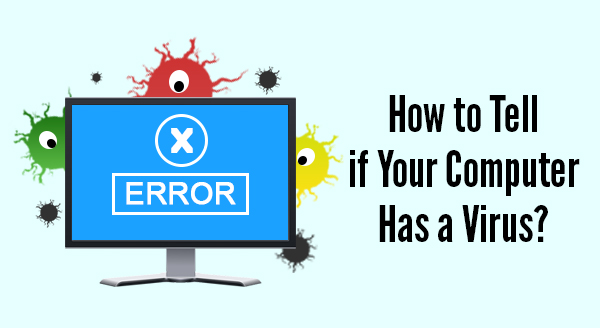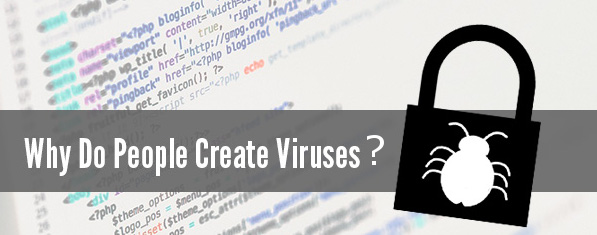Malware (short for malicious software) is an umbrella term that encompasses many different types of malicious code including:
- Viruses
- Spyware
- Ransomware
- Adware
- Key loggers
- Trojans
- And more

Malware (short for malicious software) is an umbrella term that encompasses many different types of malicious code including:
 Sometimes computers do crazy things that ring alarm bells and make users think it is a virus. Next thing you know the boss is telling everyone to run scans and demanding people come clean about their browsing habits. Fortunately, not all weird occurrences are viruses related – sometimes your computer is simply overloaded, overheating or in desperate need of a reboot.
Sometimes computers do crazy things that ring alarm bells and make users think it is a virus. Next thing you know the boss is telling everyone to run scans and demanding people come clean about their browsing habits. Fortunately, not all weird occurrences are viruses related – sometimes your computer is simply overloaded, overheating or in desperate need of a reboot.
Here are some of the tell-tale signs that your computer maybe infected with malware:
Strange Error Messages
Does your computer have messages popping up from nowhere that make no sense, are poorly worded or just plain gibberish. Take note of anti-virus and security warnings too, check that the warning is from YOUR anti-virus software and looks like it should occur. If a message pops up that isn’t quite right then don’t click it – not even to clear or cancel the message. Close the browser or shut down the computer, then run a full virus scan.
Suddenly Deactivated Anti-virus / Malware Protection
The best way past a security guard is to sneak it when they are not around. Certain malware infections are programmed to disable the security systems first, leaving your computer open to infection. If you reboot and your protections are not enabled you may be under attack. Attempt to start the anti-virus manually and if that doesn’t work, backup your data and try and reinstall your security software.
Social Media Messages You Did Not Send
Are your friends replying to messages you never wrote? Your login details may have been hacked and your friends could be tricked into giving up personal information or money. Change your password immediately and advise your contacts of the hack.
Web Browser Acting Strange?
Perhaps your homepage has changed, it is using an odd search engine or opening/redirecting your to unwanted sites. If your browser has gone rogue it is definitely malware which could be trying to steal your personal or financial details. Skip the online banking and email until your scans come up clear and everything is working normally again. Once you are certain your machine is clean, change all your passwords.
Sluggish Performance
If your computer speed has slowed, boot up takes an eternity and even opening programs takes forever, it is a sign that something is wrong. It is not necessarily a virus though. Run your anti-virus scan and if that resolves it, great, if not, your computer may have a hardware issues or your computer needs a tune-up or service.
Constant Computer Activity
You are not using the computer but the hard drive is going nuts, the fans are whirring, and the network lights are flashing like a disco? It is almost like someone IS using the computer! Viruses and malware attacks use your computer resources, sometimes even more than you do. Take note of what is normal, and what is not and seek help if it looks like something is amiss.
If you have a virus that you can’t get rid of or need a service on your computer give us a call at 08 8326 4364 or at
su*****@dp*********.au
.
 Writing a computer program is hard and writing a virus is even harder (BTW you don’t even need programming skills as viruses templates can be bought online), so why do people do it? In the majority of instances it comes down to 3 reasons:
Writing a computer program is hard and writing a virus is even harder (BTW you don’t even need programming skills as viruses templates can be bought online), so why do people do it? In the majority of instances it comes down to 3 reasons:
While bragging or being a jerk is pretty self-explanatory, the money side is more interesting. Here are some of the ways people make money with viruses:
Bank account theft: As with real bank robbers virus creators are more than happy to help themselves to the money in your bank account. Once they have your login details (obtained via a key logger) they simply transfer your funds away or use your credit card details to go on a shopping spree. Sometimes they’ll leave the fun to another person by selling your details to the highest bidder.
Ransomware: Sometimes a virus will encrypt your files and demand money for a key to unlock you own data. Without a true backup procedure in place you are at their mercy. Once you have paid the nightmare may not be over as they now know you are an easy target and request even more money.
Ad swappers: A very cheeky technique which you may never know is happening to you. This scam is when a virus puts annoying ads on websites you visit or places affiliate codes on pages. When you buy something legitimately – eg, from Amazon – the affiliate codes allow the hacker to get a percentage as a ‘referral fee’. Their kickback doesn’t make your purchase cost more and you may not even know you are infected.
Bitcoin mining: You have heard of digital currencies being used for payments but did you know you can also earn money via bitcoin mining? You can earn this money by running specialized software on your computer but sometimes this means paying more in running costs than you would actually make – unless you were very clever and sneaky, and used a virus to use the processing power on other people’s computers.
Botnets: If infected with a botnet, a computer can be remotely controlled to do whatever the virus creator wants. In most cases they’ll usually set the infected computers to overwhelm a target computer and blackmail the owners of that computer – the ‘Botmaster’ says “pay me thousands of dollars or I’ll crash your computer.”
Account stealing: Subscription accounts like Netflix and Hulu are often hijacked allowing other users a free ride by using your accounts. Gaming accounts open up another world of financial incentives with those digital items that people work hard for in the games worth a pretty penny on the black market.
These are just a few of the ways people make money through viruses and malware. If you know of any others please leave a comment below.
Give us a call at 08 8326 4364 to make sure your computer is secure and protected.